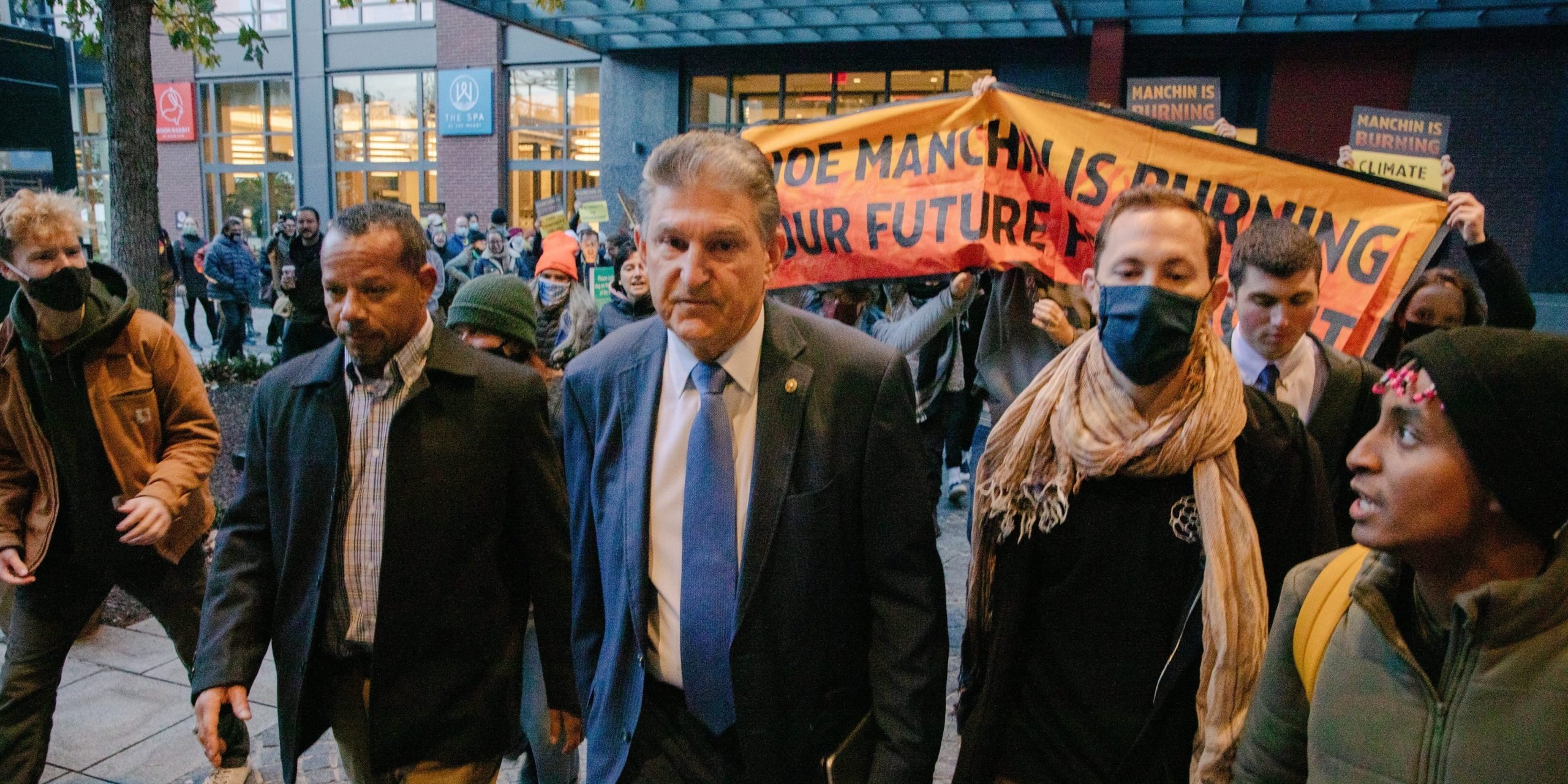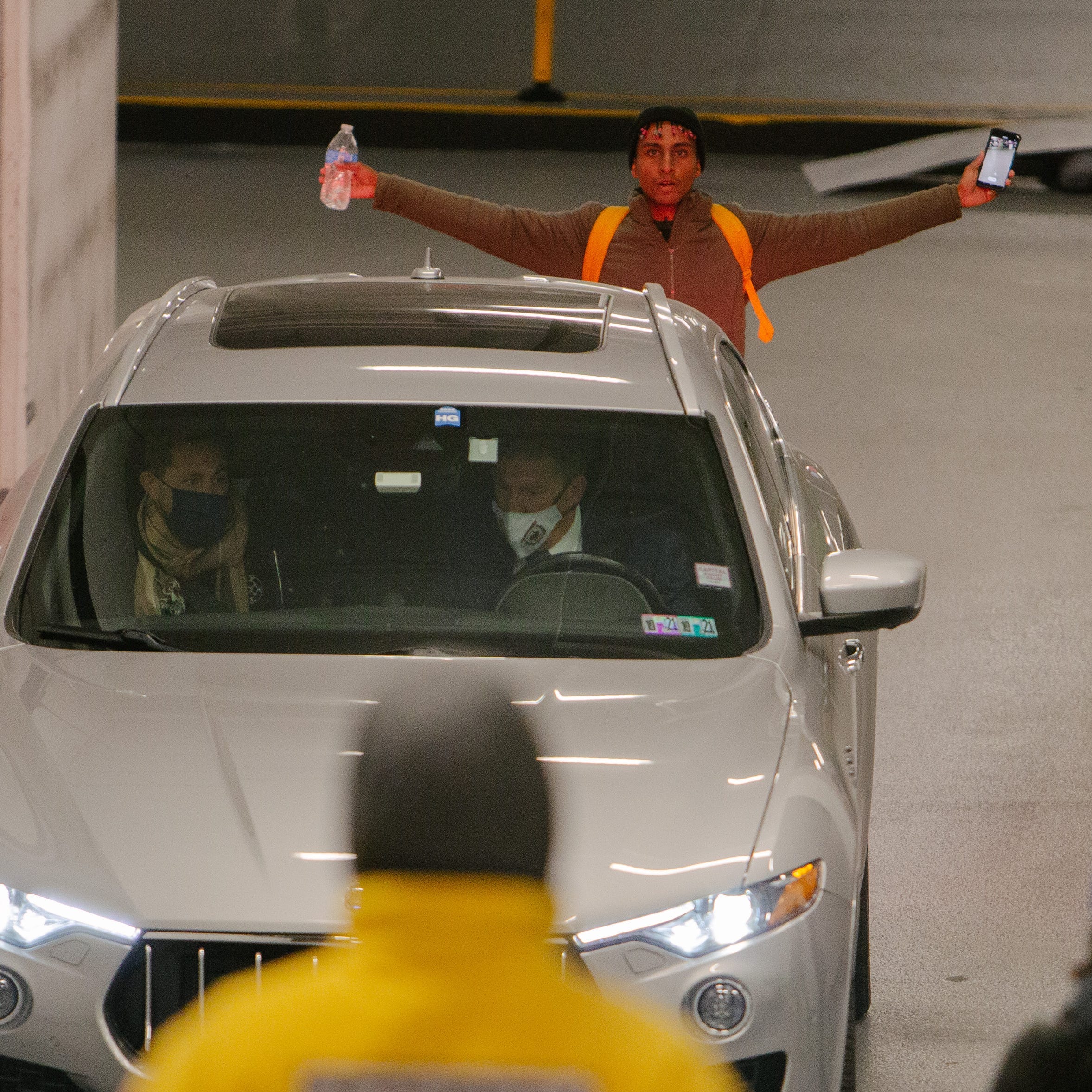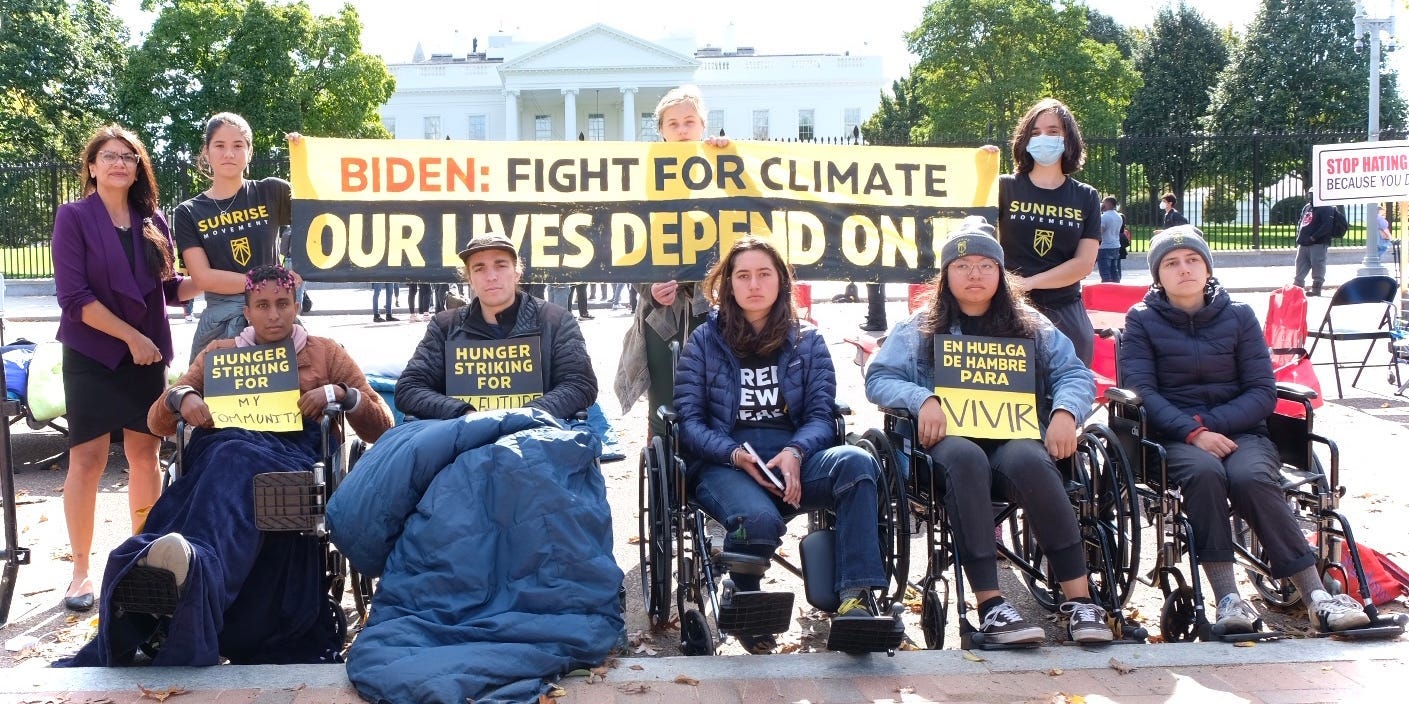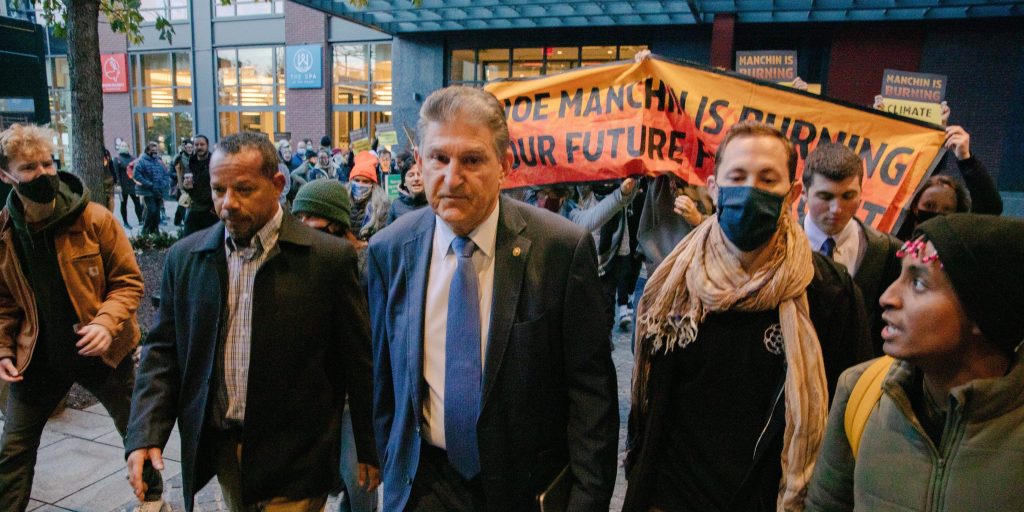
Courtesy Rachael Warriner
- A group of protesters met Sen. Joe Manchin outside of the Capitol Yacht Club "we want to live."
- The protesters demanded that lawmakers pass the reconciliation bill in full.
- Manchin is one of two key holdouts on the bill, which contains climate change solutions.
The day after young climate change protesters from the left-leaning Sunrise Movement ended a two-week hunger strike the group switched tactics.
With a banner that said, "Joe Manchin is burning our future for profit," over 100 protesters gathered at 6 a.m. ET outside of the Capitol Yacht Club where his houseboat (where he lives while in DC) is docked.
The protester's demand during the hunger strike and the confrontation with Manchin? Pass the reconciliation bill – particularly without cuts to measures aimed at addressing the climate crisis.
They also demanded that Manchin be ousted as chairman of the US Senate Committee on Energy and Natural Resources.
The protesters confronted him near a parking structure, swarming his Maserati, and some even tried to get to the dock by canoeing through the Potomac but were stopped by security.
-Hunger Strike 4 Climate Justice (@HungerStr1ke) November 4, 2021
Protestors captured footage of them shouting at Manchin inside of his Maserati, "We want to live!"
-Hunger Strike 4 Climate Justice (@HungerStr1ke) November 4, 2021
Shortly after the confrontation, Manchin appeared on CNN where he called the Senate "a hostile working environment."
Kidus Girma, a 26-year-old organizer with the Sunrise Movement who came from Dallas to participate in the two-week hunger strike, described Manchin as "someone who's made millions of dollars off of coal money."
Manchin accrued $500,000 in 2020 in stock dividends from his son's coal company, Enersystems, which Manchin himself founded in 1998, Insider previously reported, and in which he holds an estimated $5 million stake, according to the Guardian and Center for Media and Democracy.

Rachael Warriner
In phone calls with Insider, Girma said that he is "continuously and consistently delaying the legislation that everybody on this planet needs."
The bill started at $3.5 trillion over 10 years ($350 billion per year) and - after pruning provisions like, but not limited to, free community college and cutting paid family leave from 12 weeks to four - it is now resting at $1.75 trillion over 10 years ($175 billion per year).
Manchin has explained his position by saying he wants to avoid giving Americans "an entitlement mentality."
"I will not support a bill that is this consequential without thoroughly understanding the impact it will have on our national debt, our economy, and the American people," said Manchin on Monday.
In addition to opposition to the price tag for what Biden has called investments in "human infrastructure," Manchin opposed some climate change provisions in the bill.
The reconciliation bill in Biden's Build Back Better plan would reduce US greenhouse gas emissions by 50-52% by 2030.
"I think Manchin must believe that he has enough money to not have to experience the worst effects of climate change, but even if he doesn't experience the worst effects, he will experience effects," Girma said.

Rachael Warriner
The group of activists, ages 18-26, flew out to DC compelled to take a stand against cuts made to the reconciliation bill, during ongoing deliberations and compromises with Manchin and Sinema of Arizona. Every Democrat, including Manchin and Sinema, must vote in favor of the spending package for it to pass.
Alongside Girma, 24-year-old Julia Paramo from Dallas, 24-year-old Paul Campion from Chicago, 20-year-old Abby Leedy from Philadelphia, and 18-year-old Ema Govea from Santa Ana, California committed to going without food, relying solely on water, to demand that Congress pass the reconciliation bill. The hunger strike lasted a little more than 14 days.

This is not the Sunrise Movement's first radical action. They have previously occupied government offices in protest and are vocal proponents of the Green New Deal.
Their mission is to relay the urgency of climate change. According to the United Nations Environment Programme website, global greenhouse gas emissions need to be cut by approximately 50% by 2030 "to prevent extreme climate change, biodiversity loss and to curb pollution and waste."
"Climate change is no longer a future problem. It is a now problem," Executive Director of UNEP, Inger Andersen, said in a press release. "To stand a chance of limiting global warming to 1.5°C, we have eight years to almost halve greenhouse gas emissions: eight years to make the plans, put in place the policies, implement them and ultimately deliver the cuts. The clock is ticking loudly."
The Office of Senator Joe Manchin did not respond to Insider's requests for comment.
